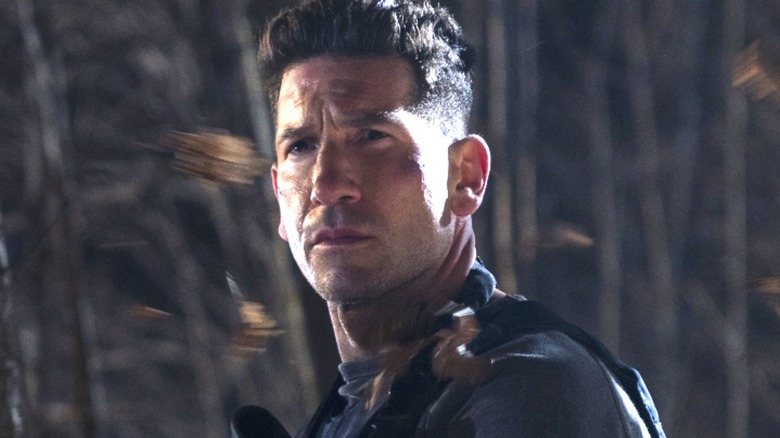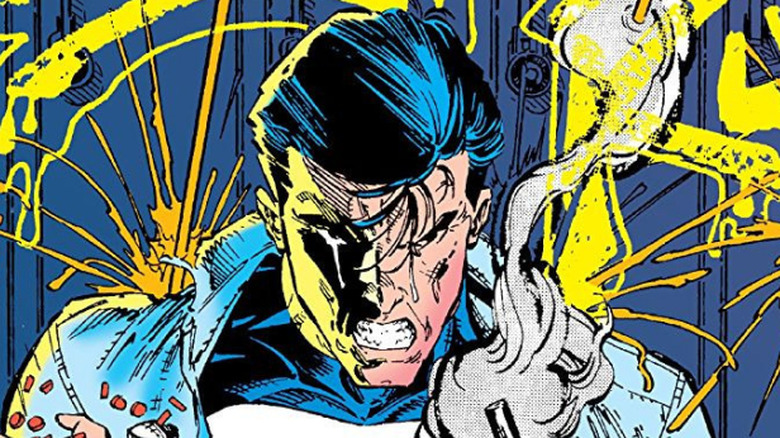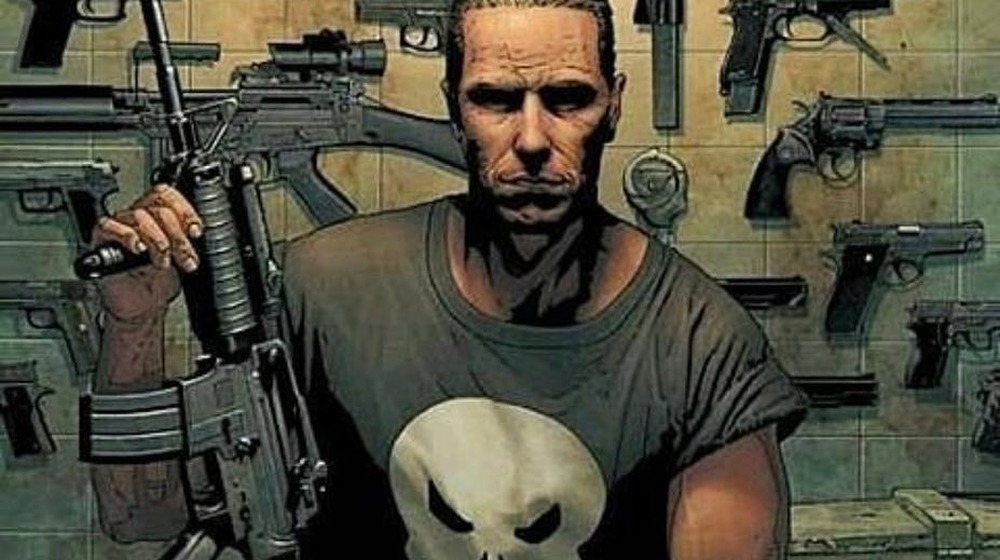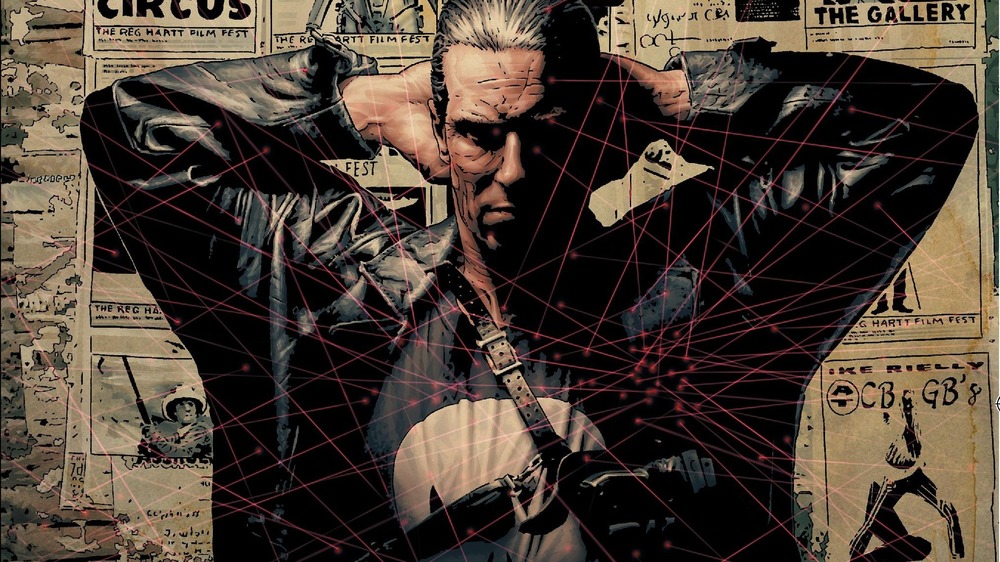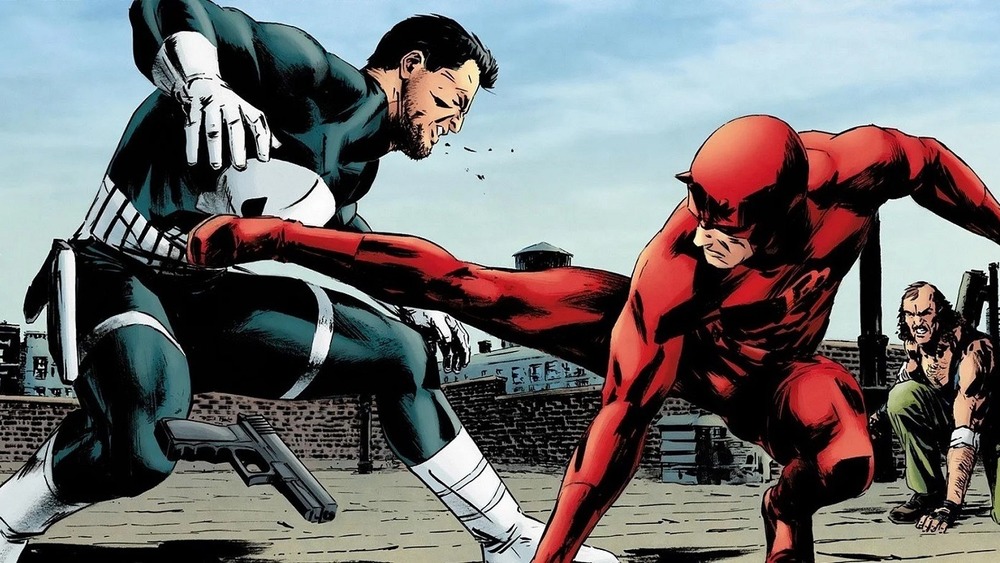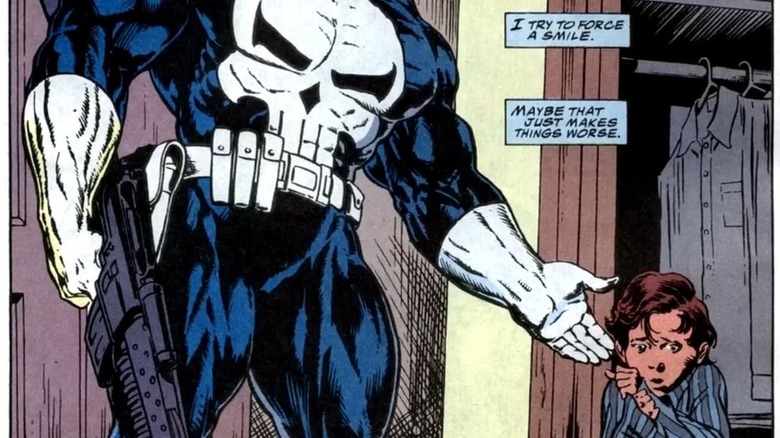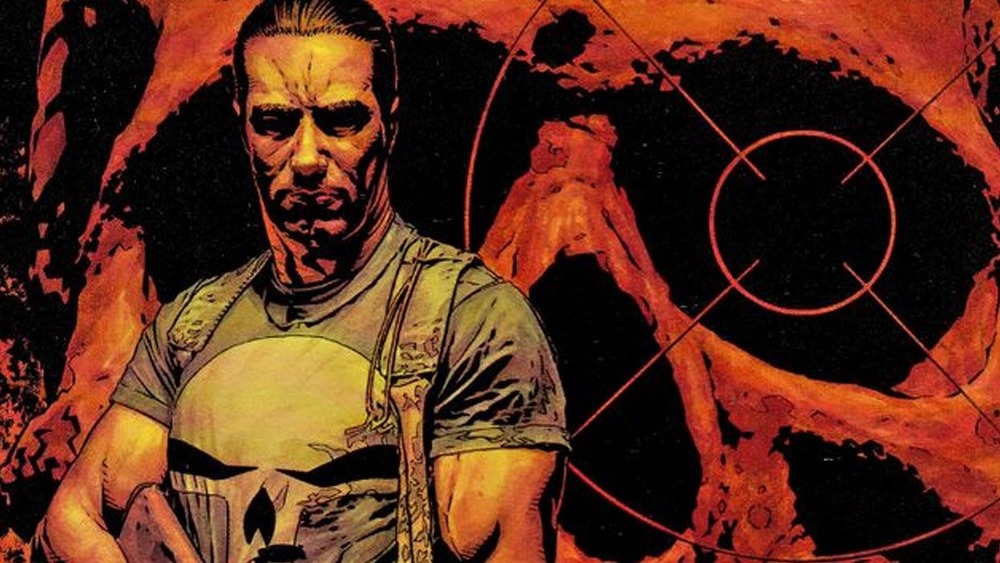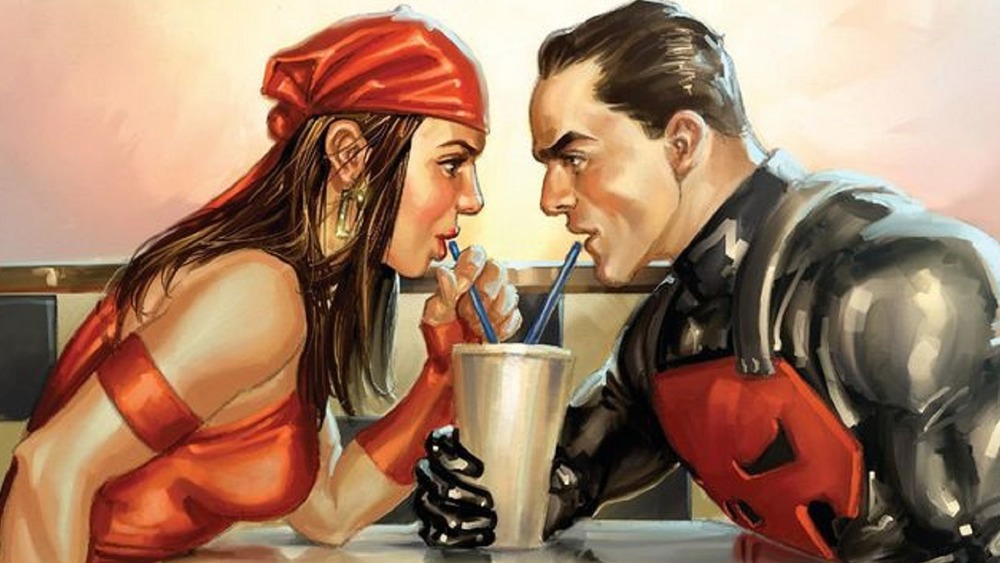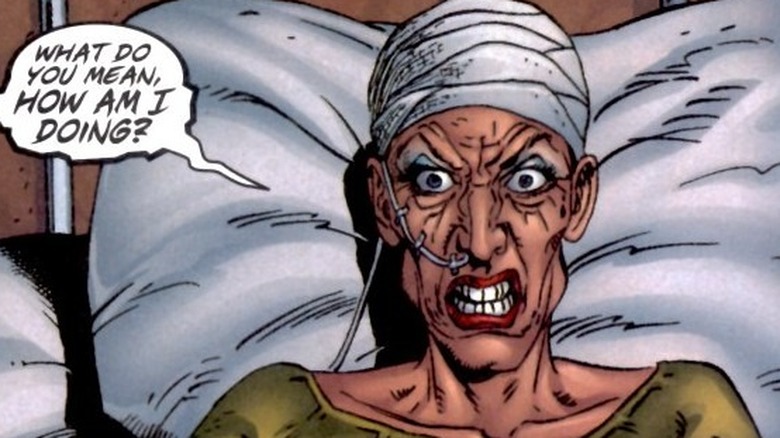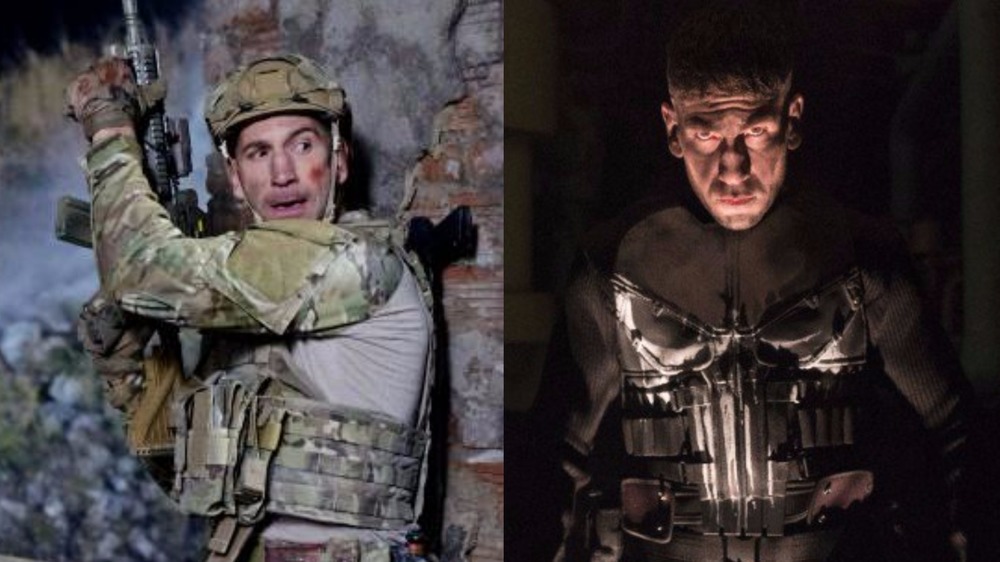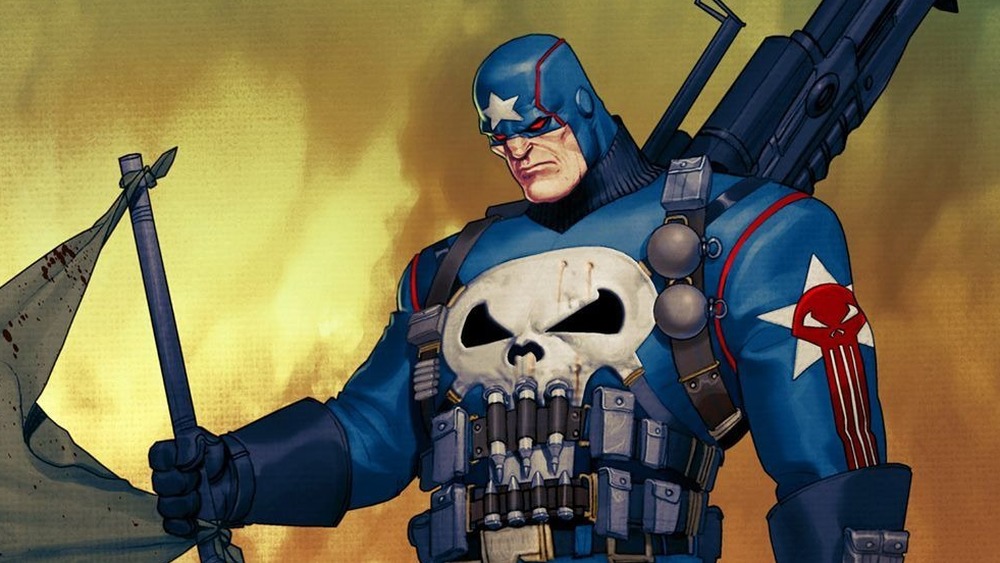Rules The Punisher Has To Always Follow
Frank Castle, better known as The Punisher, is a fan-favorite character and one of the quintessential anti-heroes in the comics industry. His violent tendencies, uncompromising nature, and murder sprees against the criminal underworld are the stuff of legend. Beneath that blood-and-guts facade, however, lies a character defined by the struggles and desperation resultant from the slaughter of his family. Though few have been through anything close to the tragedies Castle has, his story resonates with readers and helps them emotionally comprehend his decision to become a vigilante: by "punishing" evil-doers, he saves innocents from suffering his own family's fate. His history and motivations make The Punisher's story a cautionary and timeless tale in the same breath.
First appearing as a villain in The Amazing Spider-Man #129 (1974), Castle has shown himself to be versatile over the years, with his own highs, lows, and share of ridiculous storylines (it's better if we all forget when he was an angel). He's guest-starred in many other books, and he was even a Thunderbolt and an Avenger at one point, while also crossing paths with Batman, Eminem, and Archie. One thing that makes Castle so interesting when he teams up with others or is put in compromising situations is his level of violence juxtaposed to the rules he follows. That code has been with him since the beginning, and he will only bend (depending on the writers) on rare occasions; yet what are the rules exactly?
Avoids civilian casualties
Frank Castle's crusade is fueled by the death of his family, the idea that if he takes the law into his own hands, more innocent people won't have to suffer. This means that his actions can't harm uninvolved bystanders, and that there is no acceptable level of collateral damage when it comes to human life. It's a part of his code that has been discussed many times, but recently, season one of the Netflix series put it best when David Lieberman/Micro questions how his rules work exactly. Whatever Castle has to do to get his target he will, but a plan isn't good if the safety of non-targets can't be guaranteed. Punisher even goes as far as to kill other vigilantes who aren't careful about this, as seen in stories like Welcome Back Frank.
This horrible event does happen in some smaller or non-canon stories, but it's usually for a larger purpose or important to the narrative. In many of these stories, Castle believes he killed someone, only to find out that it was a setup or that the person was already dead. In Greg Rucka's run, Punisher trains a woman named Rachel Cole-Alves to follow in his path after her life is turned upside down in the same fashion his was. Rachel kills an innocent man, but Frank decides not to kill her, knowing that the event will stick with her and keep his disciple from doing it again, showing the importance of not killing innocents.
Plans his attacks
Part of protecting the innocent is minimizing the number of non-combatants around when the attack happens. Frank Castle isn't the type to go into a fight blind, as the former soldier is a master tactician. He's constantly aware of his surroundings and escape routes, places hidden weapons as well as traps, and only in the 2004 movie does he bother setting up a flaming skull in the parking lot. Some of his hits are planned for weeks to ensure that he has all the information on his targets, their routines, and what he needs to dispose of them. His plans have backups, those backups have fallbacks, and in the end, it is very rare that the Punisher is caught without some level of preparation. This is in part how Castle can keep to his code and improve his chances of success.
A common part of Punisher stories is upsetting those finely-tuned operations or putting him in situations that can't be planned for, to see how he improvises when caught off guard. Castle rolls with the punches and figures things out with what he has available. He has gotten sloppy a few times and even made mistakes. In Up is Down, Black is White, a mobster named Nicky Cavella desecrates the graves of the Punisher's massacred family and almost kills him. Castle's rage — and even his compassion at times — can cause him to err, but it is rare not to see some level of recon.
Won't kill police
As a former marine, Frank Castle has a level of respect for those in uniform that resembles a kind of professional courtesy. Unlike normal civilians, police officers and soldiers might feel the need to try and stop or subdue him, or maybe even attempt to take out the vigilante. But that's in the line of duty or on someone else's orders in most cases, which Castle understands from his time served. He might work his plan around these civil servants or fight in non-lethal ways to take them out — sometimes a well-placed fist or elbow is necessary and easy to recover from — but he doesn't kill them unless they truly deserve it.
There are a couple of exceptions to this rule, especially in stories like Born, which show a pre-Punisher Castle exacting a harsher justice on his own men. When one of his soldiers rapes a woman, Frank drowns the man himself, as well as tricking a general to walk into sniper fire. More often though, the Punisher exposes or stops these individuals and lets them go through the justice system as intended. They could also be handled internally by their peers, but books like The Slavers shows that some just quit after running into the Punisher. It doesn't matter if a police officer agrees with Castle's methods or not, as long as they're clean, they have little to worry about from the Punisher — until it's time to clean up the bodies.
Doesn't make friends
Many writers enjoy teaming Frank Castle up with someone — a reluctant partner, an arrangement of convenience, or a hero who doesn't agree with his methods — to create conflict. But if the Punisher had his way, every mission would be solo. Castle doesn't trust easily and his capacity for dealing with stupidity is limited. He's not the type of guy to just hang out at a barbeque and socialize. Most of the people he interacts with are out of necessity, shopkeepers or neighbors, but everyone is kept at a distance. The people he speaks to regularly are often contacts and informants — those who are already slightly in the criminal world and dirty.
When he does establish a relationship with someone, it often ends poorly, like when Spacker Dave is tortured for information in Welcome Back Frank. Being associated with the Punisher in any positive way makes one a target, a weakness that can be exploited to get at him. Frank avoids making friends to keep people safe and minimize his social footprint. Castle's most well-known associate is Microchip, David Lieberman, but depending on the story, Castle has had to kill his former ally at least twice. In one of Garth Ennis' many Punisher stories, the vigilante finds out that he has a daughter, but after she's used as leverage against him, Castle spends the day with her before giving the daughter away and instructing that she should never know about him, guaranteeing her safety.
Refuses to leave the innocent behind
Frank Castle is a former Marine, a group that has the motto of "leave no one behind." It's a rule that seems to have stuck with him, even after becoming a vigilante, if not intensified by the loss of his family. As the Punisher, he has altered plans, let a foe escape, or even put himself in greater jeopardy to keep this philosophy. This goes to some extremes, in stories like Mother Russia, where Castle can never be accused of taking the easy way out; he saves a little girl while trapped behind enemy lines when all they needed was her blood.
Punisher has put himself in danger plenty of times to guard innocents against gunfire, but he's also risked being arrested to make sure others survive. In Kitchen Irish, Castle and others are caught in a blast from a bomb meant for him, but he stays as long as he can until others show up, applying first aid to another patron. Making the decision that he can at least save one person, even while he's still bleeding from his injuries, shows what a situation like that means to him. In several stories, one of Castle's allies is taken hostage and he must knowingly walk into a trap or give something up to ensure they live. It's a pretty common trait in a hero, but it still says a lot about his convictions that he rarely considers losing anyone as an acceptable loss.
Won't cut deals
It won't come as much of a surprise, but The Punisher isn't fond of making deals with those in the criminal underworld. His word means something to those he wants to keep safe or respects, but past that, Frank Castle says what he needs to for the situation. In some instances, a henchman that knows he's about to die will try and offer up information, bargain for his life, or simply ask to be spared, but there is usually no mercy to be found. Sometimes, even when the information is given and freedom is implied, Castle will still leave them with a memory of the encounter — in the form of a non-lethal bullet — or kill them anyway. This is seen often, but probably best imitated in The Punisher, a 2004 video game that captures the character and his methods well.
Some stories see Castle put in positions with more complicated arrangements, either forcing him into working for or with a potential target or when someone important is being held against their will. In these cases, Punisher will go along with the plan or agree to certain parts of it to buy himself time or wait for a better opportunity to retaliate. In stories like Business as Usual, Castle is seen using these situations and playing along to get something else he wants or a bigger prize in the end. For most though, making a deal with the Punisher is just prolonging death.
Keeps his appeal
We've explained why Frank Castle doesn't keep friends and is often on the move to stay ahead of the law and his enemies, but somehow he still manages to find a little time for romance — or more accurately, some physical activities without attachment. It isn't often the case that Punisher finds someone he's compatible with on that level — because usually, they need to be just as damaged as him or quite desperate — but there are characters who admit being attracted to him, usually in a blunt manner. The number of women he winds up sleeping with might be surprising, but like his foes, a good number of them wind up dead. Yet he did end up having a child with Kathryn O'Brien, a recurring romantic partner from the Garth Ennis run.
For something a bit more high profile, Castle has also taken a liking to Elektra. He's not only smitten by her ability to kill, but she has a troubled past similar to his and has already died once — he's bitten the bullet twice himself — so it made sense that Punisher would ask her out on a date. The couple obviously had some people rooting for them, as the Marvel Knights version of the 2099 universe featured a Punisher character who was the offspring of the two. Knowing the character, none of his relationships could ever last and most women can't compare to his deceased wife, Maria.
Pulls no punches
We all know the Punisher is harsh on crime. He used to take shots at jaywalkers and litterbugs in the early years, but has, thankfully, mellowed out on the small issues. Now he's more about hurting those whose actions harm others; he is judge, jury and executioner. Once he decides that someone needs to be punished — that they would be better off dead — there is no holding back. These are comics that revel in their violence, even if the amount of blood and gore might fluctuate depending on the series. A minor henchman might get off lucky, maybe Castle keeps it simple when he's in a hurry, but anyone who really hits his radar and causes problems — save for a very few recurring villains — doesn't get to go quietly into the night.
The incident most like to point out is with Ma Gnucci from Welcome Back Frank, where one solid punch to a polar bear leads to her being mauled and made a disfigured amputee. But that isn't how she bit it; death came later, with more embarrassment. The people who really enrage the Punisher, who truly deserve it, are often brutally massacred — decapitated to make sure they're gone, or shot so many times that their bodies are turned into paint. It isn't just the bad guys though: Punisher has blown off the face of Wolverine (ideally knowing it'd grow back), before parking a steamroller on top of him, and that's someone he works with.
Can never forget the war
War is hell. It affects people differently, but few soldiers who spend much time in battle walk away unscathed. Frank Castle is a veteran of a few different wars, primarily Vietnam, but as the years go on, new origin stories have to update and re-adjust for his age. A few versions have even removed him from the armed services entirely, making the character an FBI agent or police officer, like in the Ultimate Universe comics. Whatever conflict Castle lived through, it was a time in his life that gave the Punisher the majority of his skills and tactical training. It hardened him, while scarring him as well.
Punisher is always haunted by his time in war, unable to forget the horrors he witnessed, the things he's done, and the innocents he couldn't save. Several issues of the comic have given us evidence that the Punisher suffers from PTSD, but there are hints and fan theories that his psychological state is much worse after his time in uniform. This is another subject the 2004 video game handles well, flashing comic book panels of violence and his family's massacre to demonstrate his issues. He's never had it easy, but Castle's time spent in conflict has helped shape his code and given the vigilante his violent tendencies.
Always respects Captain America
As a former soldier, it isn't a surprise that Frank Castle looks up to the natural embodiment of the flag, Steve Rogers a.k.a. Captain America. A lot of Punisher stories have him dealing with the streets and more realistic criminals, while often despising the other costumed heroes. He does work with some of them on occasion and Cap is one of the select few Castle likes and even admires, even if they often end up at odds because of their conflicting ideals. In most instances, when the two meet, there's at least a sign of respect, even if fighting is unavoidable.
In some instances, like the Civil War storyline, Punisher doesn't even put up a fight against the super soldier, letting himself be beaten bloody. When Captain America died not long after that, Castle sought to honor the man he looked up to and integrated the hero's costume into his new suit for a while. The two rarely come to lethal blows, but the Punisher did kill Cap once in an operation that turned out to be a ruse to lure out larger criminals. Castle looks up to the man, and knows that the world needs someone like him — a symbol to believe in. But that isn't the Punisher's role. His hands get dirty and he does what has to be done, so those like Captain America can stay clean and be heroes to the people.
